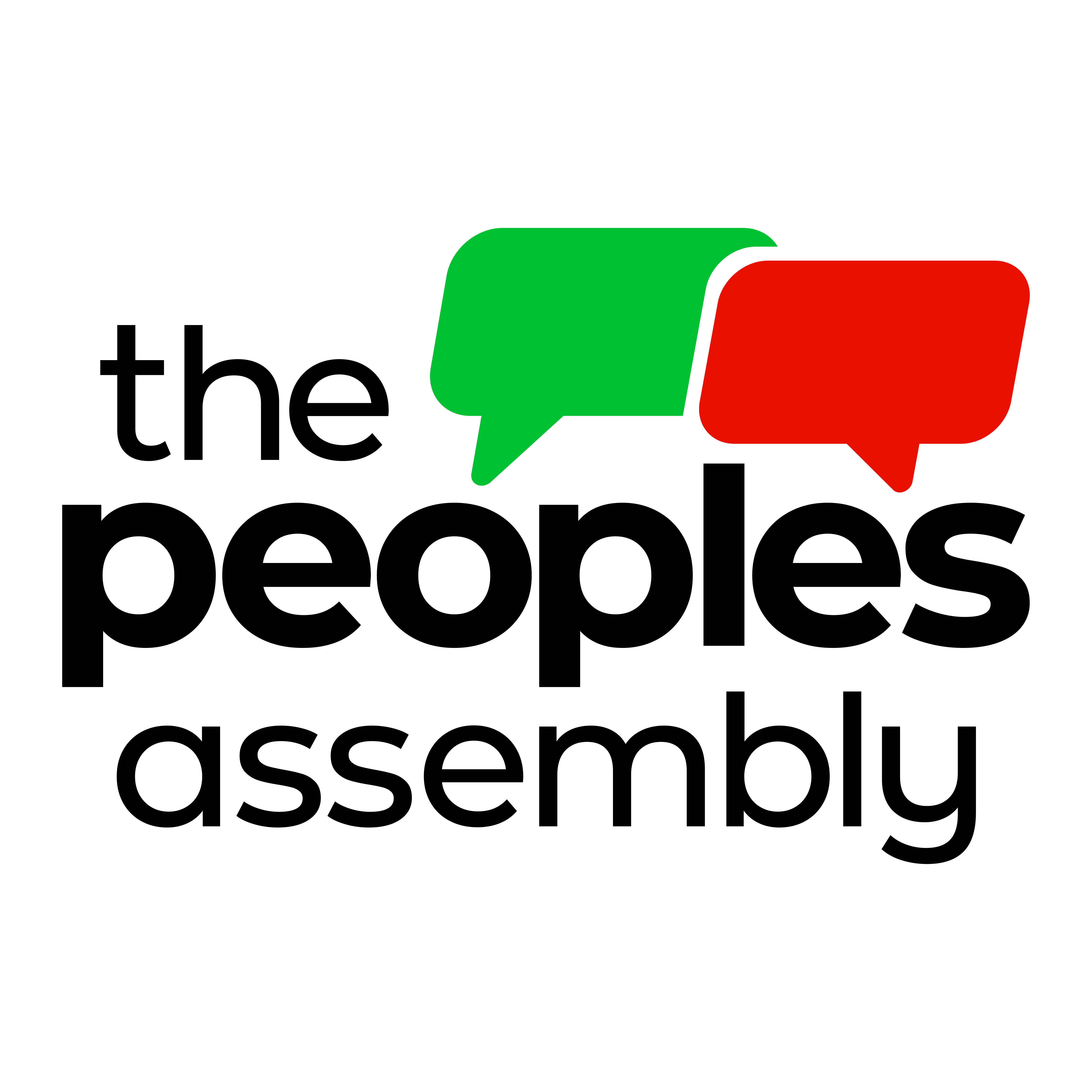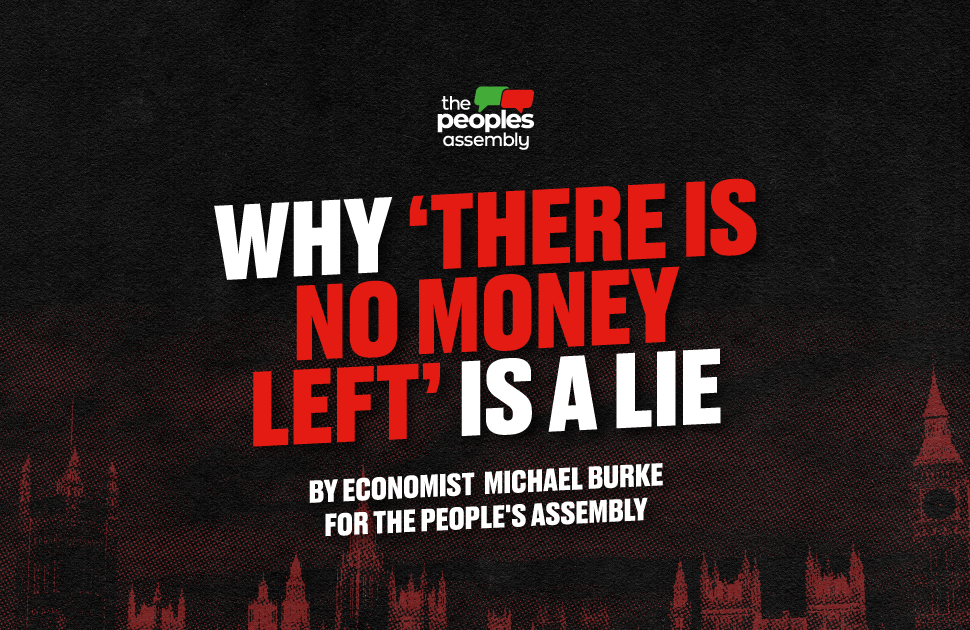This is the first article in the cost of living series by Economist Michael Burke for The People’s Assembly
Some time later this month the Chancellor is set to announce more big attacks on the living standards of ordinary people.
It might be cuts in public services. It could be cuts to public sector jobs, or pay, or pensions. Any of these will have the same effect. It will cause more staff shortages in the NHS and elsewhere, and more over-work, stress and demoralisation of remaining workers. It could be in tax increases on average and middle-income earners or cuts to benefits for people on low incomes.
It might even be a combination of all of these. But we know something like this is coming because of two things that have already happened. Last month the Chancellor announced a huge tax giveaway to big businesses and the rich. He later announced, after a lot of negative reaction, that he was going to ‘balance the books’.
If you overspend in one area, you have to cut back on others unless you want to get into debt. The government overspent on their friends in big business and the rich. If they want to get any of that back they will clobber workers and the poor.
This is Robin Hood in reverse. It is the same austerity that has been turning the screw on ordinary people since 2010.
The giveaways amount to £160 billion over 5 years. That is over £4,800 for every household in this country. And now they will make you pay for it.
One of the arguments that either the Chancellor or his supporters is likely to make is that ‘there is no money left’, and they will point to the deficit. But this is a deficit they created with the giveaways. And it is the same argument that Osborne and Cameron made back in 2010, that May made and that Johnson made.
Except it is a lie. First, the banks were bailed out, not nationalised. So the benefits were returned to shareholders not the public that bailed them out. That left us with hundreds of billions of their debts. Then they cut taxes for businesses and the rich, creating more debt. And now they are doing it all over again.
Terrible policies caused the crisis.
Despite all this it there is money left anyway. Even taking inflation into account, the sum total of all the goods and services produced in the economy has risen by well over £300 billion between 2010 and 2021.
That is very far from a brilliant outcome. Yet it a meaningful rise. If that was distributed evenly to households, they would all be £9,500 better off now. But most people are nowhere near that much better off. Many are worse off.
The claim that ‘there is no money left’ is just a lie. The cake has got a bit bigger. It is just that a larger and larger chunk has been claimed by shareholders, by City fatcats and speculators, and the rich.
Everyone else has suffered.
There is money left. It’s simply going to the rich.
Remember remember the 5th of November – National demonstration – Britain is broken


